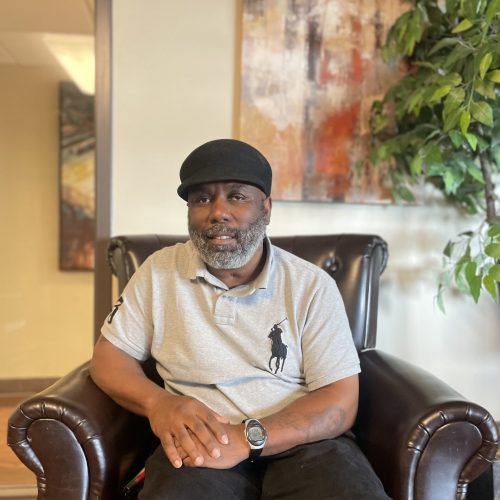
At 30, Harold McGee’s life changed dramatically after a brain aneurysm and stroke left him paralyzed and blind. “I had to learn how to live all over again—how to walk, talk, eat,” Harold recalls. Despite the slow process, he was determined to reclaim his independence.
After 18 years on his journey, navigating technology became a crucial aspect of Harold’s rehabilitation. Last year, he was introduced to Cyber Seniors, a program dedicated to digital inclusion. “Everything catapulted” when he joined, thanks to the program’s support and resources.
Initially, Harold struggled with a tablet that wasn’t accessible for the visually impaired, but the Digital Inclusion team, led by Marian Christmon, ensured he received an iPad that allowed access to the programs necessary for the visually impaired. “Ever since then, it’s just been like clockwork,” Harold says.
Cheryl Hadley, an adult educator with Digital Inclusion, watched Harold’s progress and growing confidence. “Harold aspires to be a motivational speaker,” Cheryl notes. With newfound skills, Harold began using Zoom to attend Toastmasters meetings and connect with the National Federation of the Blind. These platforms have provided him with invaluable public speaking practice and a supportive community.
Harold’s experience with Cyber Seniors has made him a lifelong learner. Whether he’s using his skills to read on his iPad, practice typing, or manage his email, he continues to develop his abilities. With his newly acquired laptop and JAWS software, a computer screen reader program, Harold says, “Right now, I am focusing on getting the skills down so I am prepared, and then I will have a better idea of what I can involve myself in” as he explores job opportunities.
Reflecting on his journey, Harold says, “Cyber Seniors opened up a new world to me. I plan on taking advantage of it as far as it will take me.”